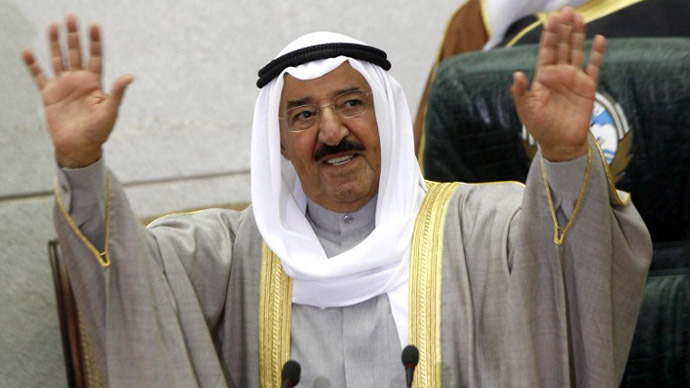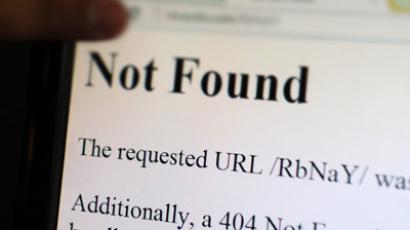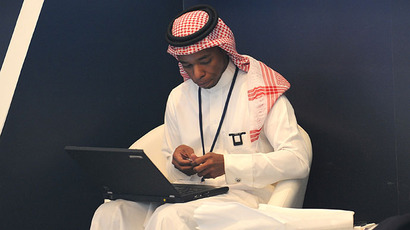Kuwaiti teacher given 11-year sentence for Twitter criticism of government

A teacher in Kuwait has been given an 11-year sentence for offensive tweeting against the country’s monarch, calling for his ouster. This comes amid increasing tightening of internet freedom laws across the Gulf region.
Huda al Ajmi, 37, faces three separate charges, which together
amount to the longest sentence for a crime of such a nature in
Kuwait, according to the country’s political opposition groups.
The charge for insulting the Emir, Sheikh Sabah al-Sabah, whom
the constitution describes as ‘immune and inviolable’, alone,
carries one year. The other terms were both five years, given for
encouraging a rebellion against the regime and for breaking the
law on public discussions.
Huda al Ajmi will be able to appeal her three sentences.
This type of government crackdown on online activity has been on
the rise in Kuwait, despite the country priding itself on being
generally more liberal state than its neighbors.
Although managing to land an appeal, last year, a former MP had been served a five-year sentence for insulting the Emir, when he gave a speech saying the ruler would not succeed in “taking Kuwait into the abyss of autocracy.”

As for the Gulf Arab region as a whole, it has also been seen as
collectively acting to limit internet
freedoms. The measures a lot of them have taken include
restricting content on social media sites, making
“offending” posts punishable by extensive jail sentences.
Aside from Kuwait: Saudi Arabia, Qatar, Bahrain and the United
Arab Emirates have all tightened controls on Internet freedoms
recently, targeting social media and phone applications alike in
their effort to stifle freedom of speech.
Across the Gulf, dozens of journalists and social media users
have been arrested since the beginning of the year for being in
violation of the uncompromising national laws. Kuwait has
arrested at least six since the beginning of 2013.
However, women serving time for such crimes are not a common
sight in the Gulf state. Two female activists have recently
narrowly escaped jail by having their sentences suspended.
Of all the Arab states in the region, Kuwait has suffered the
least amount of anti-government violence and uprisings, but the
number of people speaking out over Facebook or Twitter and being
arrested for it is no lower than elsewhere.
The most recent political unrest in the country has erupted in
December 2012, after the Emir had introduced a controversial
change to electoral law, and was widely blamed by opposition
groups for attempting to deny them a majority.
Kuwait has been a member of the International Covenant on Civil
and Political Rights (ICCPR) since 1996, which protects the right
to freedom of expression, including peaceful criticism of public
officials.














